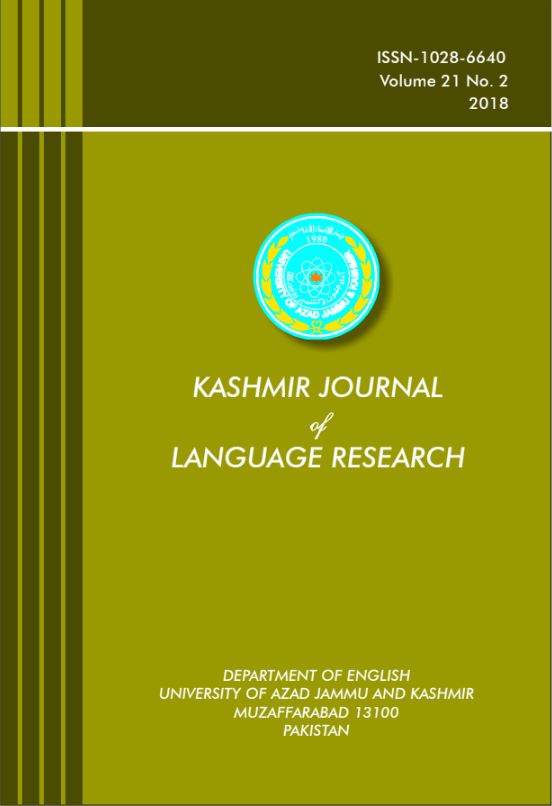Quantizing the Audience Role: Experimental Drama of Beckett and Brecht
Abstract
Every new theatre performance is primarily an experiment with its respective audience. The greater the audience interactivity in the theatrical space, the greater is its worth in terms of leaving an amaranthine impression in the minds of literary aficionados and ordinary spectators to achieve the required ends. This paper, in its focus on Beckett’s and Brecht’s obsessional concern with the participatory orientation of theatrical space, seeks to explore a “revitalization of the dead relationship between the stage and its audience” (Sakellaridou, 2014, p.14). I am particularly interested in the ways in which Beckett and Brecht handle stage-audience transactions: one transforming the stage into a space where both characters and spectators share a physical and emotional experience, the other emphasising spectatorial dynamics with the aim of prompting observation and critical thinking on the part of the spectators, respectively. In so doing, I suggest that Brecht’s and Beckett’s spectator-oriented theatrical strategies are informed by quantum dynamics and relativity, thereby decentring the Aristotelian canon to refocus actors’ and spectators’ attention on the issue of representation itself and a fragmented view of the world. Nevertheless, despite their different attitudes towards their respective audiences – one emotionally involving the spectators while the other alienating the spectators from the actors – I argue that both question the classical paradigm of narrative closure in order to foreground postmodern sensibilities.

Downloads
Published
Issue
Section
License
Copyright (c) 2021 Kashmir Journal of Language Research

This work is licensed under a Creative Commons Attribution 4.0 International License.




